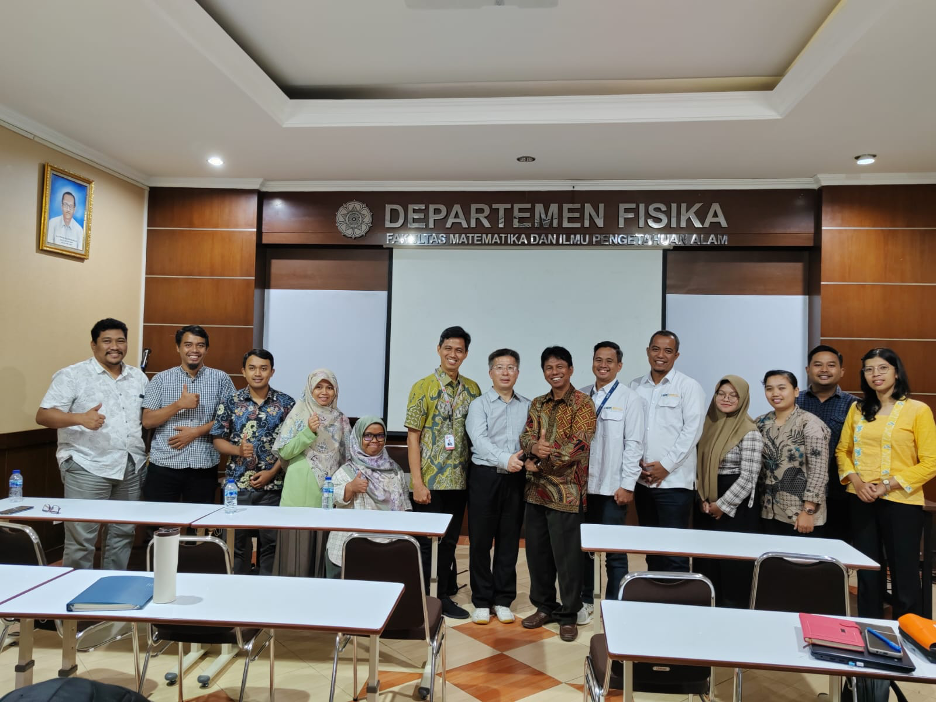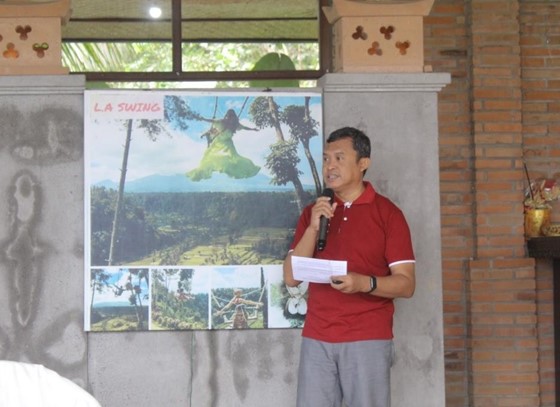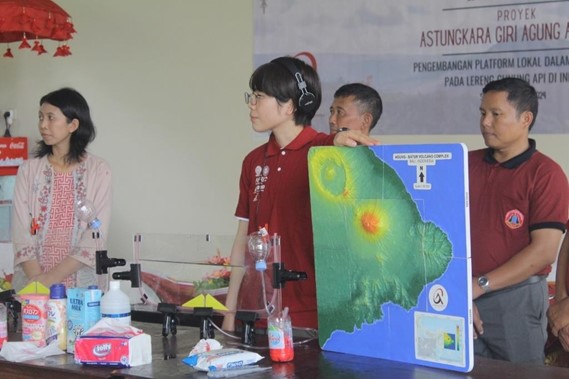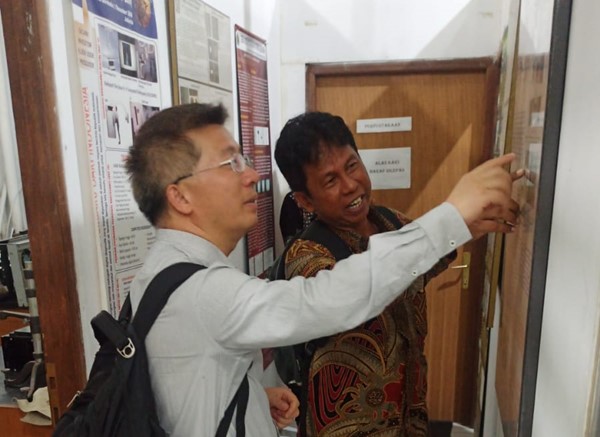
Visit of Prof. Xiao Yongshun from National Tsinghua University to the Department of Physics FMIPA UGM: Prospects for Research and Academic Collaboration
Professor Gede Bayu Suparta presented research at the Image Physics Laboratory to Professor Xiao Yongshun
The Department of Physics at FMIPA UGM welcomed a visit from Prof. Xiao Yongshun from the Department of Engineering Physics, National Tsinghua University on Feb 12th, 2024. This visit is part of his series of visits to several institutions in Indonesia such as the National Research and Innovation Agency (BRIN) and UGM. During this visit, Prof. Xiao Yongshun was greeted directly by Prof. Gede Bayu Suparta, Prof. Edi Suharyadi (Chair of the Department), and Prof. Kuwat Triyana (Dean of FMIPA UGM). The agenda included discussions on the potential for research and academic collaboration between the two institutions.
The Department of Physics at FMIPA UGM has a unique focus on research addressing local issues, which is part of the Tri Dharma of higher education. Its research focuses on volcanology and the application of radiation technologies such as digital radiography and CT scans. During the visit, Prof. Xiao Yongshun showed great interest in these unique aspects, which became the main points of discussion. The potential use of muons in volcanology research also drew attention, considering the high activity of Mount Merapi which requires constant monitoring. It is hoped that the utilization of muons in monitoring Mount Merapi’s activity can contribute significantly to understanding the characteristics of its activity and disaster risk mitigation.
The research conducted at the Department of Physics UGM has a close correlation with research in the field of radiography applications at Tsinghua University. Prof. Xiao Yongshun, who specializes in X-ray and neutron imaging research, presented on radiography research at Tsinghua University. He is also a member of the Chinese Society of NDT (Non-Destructive Testing). Tsinghua University has had the NUCTECH company since 1997, which operates in the fields of radiation technology applications, image processing, artificial intelligence, and radiation protection.
A group photo was taken after the presentation of research on radiography applications at Tsinghua University
Tsinghua University views UGM as one of the top universities in Indonesia with unique research capabilities. By involving BRIN in research collaboration, the Department of Physics UGM plans to further develop collaboration with Tsinghua University in the field of muon imaging, as well as in CT-Scan and radiography using X-ray radiation generated with LINAC (Linear Accelerator) technology. This collaboration is expected to positively contribute to advancing science and technology, education, student exchange, and expert cooperation between the two countries.
Radiography research by the Department of Physics UGM to address local issues such as health and natural disasters represents SDGs number 3, which is good health and well-being, number 11, which is sustainable cities and communities, and number 17, which is partnerships. This is evident from medical interventions through CT scans as part of essential healthcare services, disaster management, and established cooperation agreements. Thus, the agenda of the visit and the cooperation undertaken have an impact in line with the needs of the SDGs points.
Keywords: Physics, radiography, healthcare, disaster management, Tsinghua
Author: Chalis Setiyadi
Photos: Kristedjo (BRIN)
Editor: Febriska Noor Fitriana
